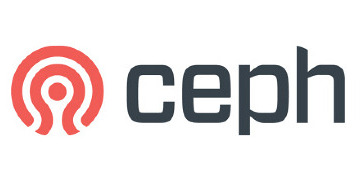About This Course
The Ceph Distributed Storage Fundamentals module
is our technical deep dive into the Ceph distributed storage platform. This
course is designed to provide an in-depth understanding of Ceph's
architecture, design, and implementation.
This course contains a total of 36 lessons including 19 hands-on
labs. You can expect to spend about 30-60 minutes on each
lesson.
Objectives
At the end of the class you will
- Know and understand the design and architecture of the Ceph
platform;
- Understand the relative strengths and weaknesses, stability,
and suitability for production of various Ceph
components;
- Be able to design and deploy a Ceph cluster in a production
environment;
- Understand the Ceph object store (RADOS), RADOS Block Device
(RBD), the Ceph filesystem (CephFS), and RADOS Gateway (RGW)
for ReSTful object access.
In the interactive labs, you will use
the ceph-ansible and Cephadm deployment methods and
the Ceph 17.2 Quincy and 18.2 Reef releases,
including the Ceph web dashboard.
In a separate bonus lab, you will also be able to upgrade to the
recent Ceph 19.2 Squid release.
Course Staff
Florian Haas
Drawing from a decade of experience in open source technology,
Florian has been a user, occasional contributor, and advocate
for Ceph since early 2012. He has participated in the
implementation of many Ceph clusters of all sizes, and
frequently consults on Ceph projects. He is also very active in
the OpenStack community.
Namrata Sitlani
Namrata is a Software Developer and Courseware Designer at
Cleura. She has been actively contributing to OpenStack since
2016 and is a Core Reviewer of OpenStack Zun. She is an active
speaker at OpenStack meetups and mentor for events which spread
awareness and encourage students to contribute to OpenStack
community.
Frequently Asked Questions
Do I need to download or install anything?
No, all course material will be delivered on demand to your
device via your web browser. Labs will be conducted online
as well.
What web browser should I use?
The Open edX platform works best with current versions of Mozilla Firefox, Safari, or any Chromium-based browser.



